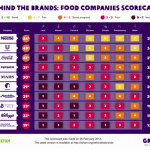PM ignores dangers native women face, urges them to "just get on" with reporting abuse.
from Human Rights Watch
VANCOUVER, February 14, 2013 — Comments by Prime Minister Stephen Harper and the Royal Canadian Mounted Police (RMCP) on February 14, 2013, fail to address the core issue of a lack of security that prevents indigenous women and girls from filing complaints of police abuse, Human Rights Watch said in reply.






